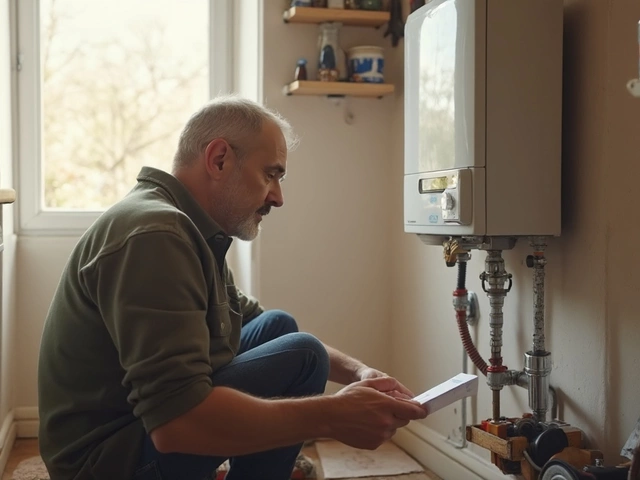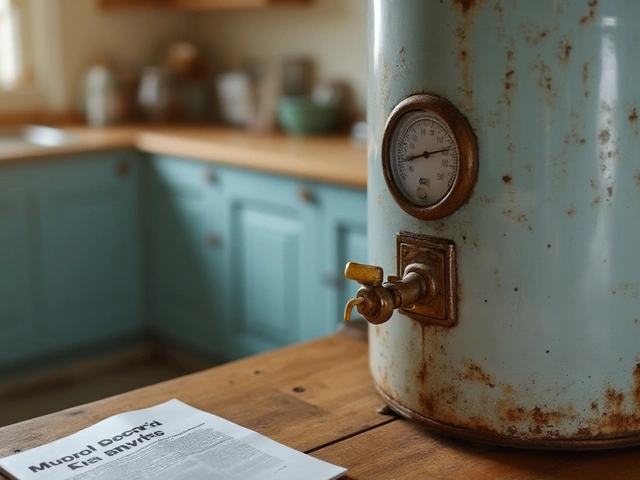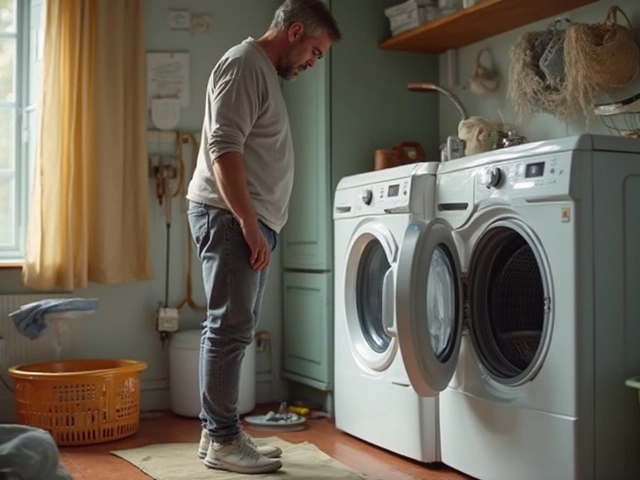Ever opened the fridge and felt a wave of warm air? Most cooling issues come from simple neglect, not broken parts. A few quick habits can stop the problem before it starts and save you a pricey repair.
First, wipe down the interior shelves every month. Spills left to dry attract mold and make the motor work harder. Use a mild soap solution and a soft cloth—no harsh chemicals needed.
Second, check the door seals. Close the door on a piece of paper; if you can pull it out easily, the seal is weak. Replace a faulty gasket before the fridge loses energy and the compressor overheats.
Third, clean the condenser coils. Dust builds up behind or under the fridge, forcing the compressor to run longer. Turn off the appliance, pull it away from the wall, and brush the coils with a vacuum brush or a soft vacuum attachment. Do this every six months.
Fourth, keep the temperature setting right. Most fridges work best at 37‑40°F (3‑4°C) and the freezer at 0°F (‑18°C). Too cold makes the compressor cycle constantly, too warm lets food spoil. Use a simple fridge thermometer to double‑check.
Finally, avoid over‑packing. Air needs room to circulate. If you stack items tightly, the cold won’t reach the back, and the motor has to work overtime.
If the fridge makes a loud buzzing sound, freezes the freezer compartment, or stops cooling altogether while the light stays on, it’s time for a professional. These signs often point to a compressor or coolant issue that needs expert tools.
Also, if you notice water pooling at the bottom or a steady frost build‑up, the defrost timer or drain could be blocked. A qualified technician can diagnose the exact part and replace it safely.
Don’t try to open the sealed system yourself—refrigerant is hazardous and requires a certified engineer. Trust a local repair service, like Bognor Regis Appliance Repair Experts, to handle sealed‑system work legally and efficiently.
Regular maintenance plus quick action when something feels off will keep your fridge humming quietly for years. Stick to these simple steps, and you’ll cut down on energy bills, food waste, and emergency repair calls.

When your fridge stops cooling, it can be a real worry, especially with all that food at risk. Before you call the repairman, there are a few steps you can try yourself to bring your refrigerator back to life. From checking the thermostat settings to cleaning coils and examining door seals, you might find that a simple DIY fix does wonders. Understanding how these appliances work can also help prevent future hassles. This guide will walk you through the essential tips and tricks to get your fridge cooling again.

Proper appliance maintenance can save money, extend lifespan, and keep everything running smoothly at home. Learn about essential maintenance tips for common household appliances and understand why some regular attention can go a long way. Dive into practical tips and advice that are easy to apply and can prevent inconvenient breakdowns.

Thinking about handling your own boiler service? Get the truth about what you can and can’t do, why safety matters, and which tasks are okay for homeowners. This article covers legal restrictions, common mistakes to avoid, and practical tips for everyday boiler care. Learn how to spot problems early and when it's really time to call a pro. Save yourself headaches, money, and maybe even a major disaster by knowing the facts.

Determining when your hot water heater needs replacement isn't always straightforward. This guide explores key signs such as irregular water temperatures, strange noises, and age that might indicate it's time to get a new unit. Understanding these signs not only ensures a reliable hot water supply but also prevents potential damage and higher energy bills. Additionally, we discuss some tips for maintenance to prolong the life of your current system.

Find out why your tumble dryer isn't spinning and learn step-by-step fixes for common dryer problems. Stay informed with practical tips and real solutions.

Navigating the world of cooker repair can seem daunting, but armed with the right knowledge, it becomes manageable. This article explores common issues faced by cookers, signs that suggest whether repair is possible, and steps on how to approach fixing these vital kitchen appliances. By identifying whether a do-it-yourself fix is feasible or when to call in a professional, you can make informed decisions about your cooker. Learn about maintenance tips to prolong the life of your cooker and keep it working efficiently.